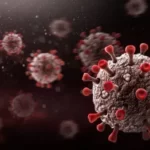ArdorComm News Network
December 28, 2022
The Delhi government authorised a budget of Rs 104 crore on Monday for hospitals to purchase generic medicines as part of emergency plans in response to a rise in cases of Covid in several nations. Deputy Chief Minister Manish Sisodia gave the heads of government hospitals instructions to share information with the Health department by the end of the day on beds, ventilators, ICUs, human resources, oxygen plants, and medical logistics.
“The surge in Covid cases globally is a matter of concern for everyone. Delhi hospitals have been asked to prepare well in advance and stay vigilant. An amount of Rs 104 crore has been approved to ensure that there is no shortage of any medicines at government hospitals and they are well prepared to deal with any situation,” a statement quoted Sisodia as saying.
The deputy chief minister stated that on Tuesday, a mock drill will be held at each hospital to make sure that the institutions are prepared to manage Covid in accordance with the Center’s instructions. Any deficiencies, he stressed, will be quickly addressed by Health department employees. The mock drill will evaluate, among other things, the availability of beds, human resources, referral sources, testing capacity, medical logistics, telemedicine services, and medical oxygen.
From Tuesday, the public will have access to real-time information on the availability of beds, oxygen cylinders, and ventilators on a portal run by the Delhi government, according to officials. An official stated that testing would probably soon be increased. Currently, the city hosts between 2,500 and 3,000 tests every day. Meetings with non-governmental organisations and resident welfare organisations are being held, and they are being asked to raise awareness of the current situation.
The new Omicron sub-variant BF.7 of the coronavirus, which is leading to an increase in cases in other countries, has not yet been found in Delhi, according to Chief Minister Arvind Kejriwal, who also stated last week that his government is well prepared to handle any situation. There have been directives issued to boost precaution dose coverage, staffing levels in hospitals, and provide samples from all positive cases for genome sequencing.
Kejriwal has also instructed authorities to obtain prior approval before purchasing any necessary materials and to check the infrastructure at all hospitals. They are self-sufficient in terms of oxygen availability and storage, according to the chief minister. Delhi experienced an oxygen crisis during the second Covid wave last year, with hospitals using social media to post SOS alerts about running out on supplies.
However, according to experts, India shouldn’t be too concerned about the BF.7 sub-strain because there are many individuals who have gained immunity to the virus, either through vaccination or prior infection, in comparison to China, where people have little immunity because of strict restrictions.


